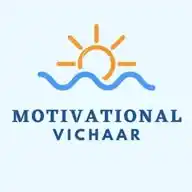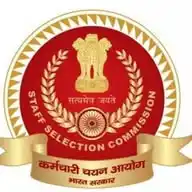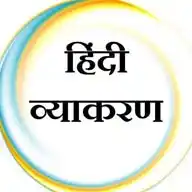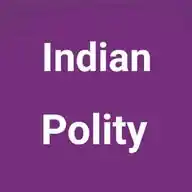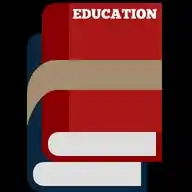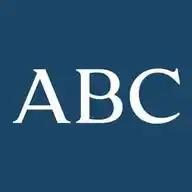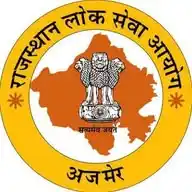
UPSC ETHICS UPSC UPSC™ UPSC UPSC UPSC UPSC Upsc Upsc UPSC UPSC UPSC UPSC UPSC UPSC UPSC UPSC UPSC™
9.9K subscribers
About UPSC ETHICS UPSC UPSC™ UPSC UPSC UPSC UPSC Upsc Upsc UPSC UPSC UPSC UPSC UPSC UPSC UPSC UPSC UPSC™
Main channel cse exam https://whatsapp.com/channel/0029Va9AbAbJZg46NAznuX2y *Subject wise channel* Upsc society https://whatsapp.com/channel/0029VaWufLw6BIEknk3zHz2R Internal security https://whatsapp.com/channel/0029VabMGoV7YSczWUxg4d2F Art and culture https://whatsapp.com/channel/0029VaeNm6EEquiVREmJrl0F Mindmap https://whatsapp.com/channel/0029VaazqwV8aKvFQwYJlw02 Ethics https://whatsapp.com/channel/0029VaaWX4aFCCobFmqcRL3q ✅ CSAT https://whatsapp.com/channel/0029Vabv60LLCoWsu9kNQl1I ✅Upsc PIB https://whatsapp.com/channel/0029VaGjIdyChq6H86MD643x ✅Science & technology https://whatsapp.com/channel/0029Va9T3U31Hspr7kNcod0g ✅Environment & ecology https://whatsapp.com/channel/0029VaBiYQY2Jl8LDfC2YZ3j ✅Upsc mains facts https://whatsapp.com/channel/0029VaQy4BBJUM2TXmGueJ2T Mains pyq model answer https://whatsapp.com/channel/0029VajSp953bbV4XmAbtb26 ✅Geography Mapping https://whatsapp.com/channel/0029Va9S9pL0rGiGyEIEUe1b ✅Polity governance https://whatsapp.com/channel/0029VaGDohxKrWQz0GZ5Fa1v ✅Prelims tricks https://whatsapp.com/channel/0029VaEPayu2v1InlnkS6K06 ✅Anmol vachan motivational https://whatsapp.com/channel/0029Va42j79297531AcAOm1X ✅Essay ethics example https://whatsapp.com/channel/0029VaHNc8mDuMRWb1Zybf33 ✅Economy agriculture https://whatsapp.com/channel/0029VaHOmr34inorlsEbVc2X ✅History culture https://whatsapp.com/channel/0029VaLZoxWBfxo4bstnop1k ✅Hindi medium https://whatsapp.com/channel/0029Va4ktYl8V0ttJgAhH70b ✅UPSC PYQS https://whatsapp.com/channel/0029VaH6GnYBvvsX99pHCG1C Upsc IR https://whatsapp.com/channel/0029VaMyvdJJ3jurNz6pne3z Government schemes https://whatsapp.com/channel/0029VaYZ5ls5Ui2c7bNRo62I
Similar Channels
Swipe to see more
Posts

🔆 SC Judges Declare Assets Publicly (April 1, 2025): ✅ All 31 Supreme Court judges, including the Chief Justice of India, declared their assets—a move rooted in a 1997 ethics code aimed at improving judicial accountability. 📍 Background Trigger – Justice Varma Incident: ✅ The decision follows the discovery of cash at the residence of Justice Yashwant Varma, sparking concerns over judicial corruption. 📍 The 1997 Code – ‘Restatement of Values of Judicial Life’: ✅ Adopted in a full court meeting, the code outlines 16 ethical principles for judges. ✅ It aimed to reinforce public trust and institutional accountability. ✅ Key guidelines include avoiding conflicts of interest, political expression, close personal ties with lawyers, and gifts or hospitality from non-family members. 🔆 Voluntary Asset Declarations Since 2009: ✅ Judges decided to declare assets “purely on a voluntary basis.” ✅ These were published online, but updates have been irregular—only 28 of 33 judges have disclosed their assets as of the latest update. 🔆 Confidentiality and RTI Limitations: ✅ A 2019 SC ruling stated asset declarations are not “personal information” exempt from RTI queries, but the practice of confidentiality persists. 📍 Gaps in Misconduct Accountability: ✅ There’s a significant gap between misconduct and impeachable offenses—no SC judge has ever been impeached. ✅ The 1997 code addresses this gap by outlining what constitutes “bad conduct.” 📍 ‘Values of Judicial Life’ as a Disciplinary Framework: ✅ The 1997 resolution laid the foundation for an internal process to investigate judicial misconduct. ✅ Reinvoked in 2014 and 2025 for in-house inquiries, such as the sexual harassment case in 2014 and the current case involving Justice Varma. 📍 Enforcement and Transparency Challenges Remain: ✅ Although the framework for accountability exists, consistent enforcement and transparency—especially in asset disclosure—remain concerns.

🔆 Integrity Empowers the Human Being (UPSC 2021) 📍 ✅ Moral Clarity Integrity helps us know right from wrong and make ethical choices. 🔹 Example: A civil servant refusing a bribe despite pressure. 📍 ✅ Courage in Adversity It gives strength to stand for truth, even when alone. Builds resilience and moral courage. 🔹 Example: Mahatma Gandhi’s non-violent resistance based on truth. 📍 ✅ Trust and Credibility Integrity creates trust in relationships and institutions, boosting leadership and influence. 🔹 Example: An honest teacher becomes a role model for students. 📍 ✅ Long-term Success Leads to sustainable growth and inner peace, rooted in ethics. 🔹 Example: Ethical businesses earn loyal customers and lasting success.

🔆 Role of Family in Inculcation of Values ✅ Social Institution: Family carries culture, language, beliefs, customs, and heritage across generations. ✅ First School of Values: Children first learn honesty, truth, and responsibility from family (e.g., budgeting groceries). ✅ Informal Learning: Values like love, compassion, and sharing are picked up through daily actions (e.g., sharing lunch at school). ✅ Role Models: Kids imitate family behavior (e.g., gender equality at home teaches respect). ✅ Emotional Support: Family provides care and comfort in tough times (e.g., a spouse’s hug). ✅ Grandparents’ Role: Transmit traditions, enhance bonding, and teach regional languages.

🔆 Ethical Take on Fiscal Prudence & Governance ✅ **Help people grow, don’t just give temporary relief**—true empowerment means creating opportunities, not just handouts. ✅ **Spending wisely matters**—blowing money on electoral promises hurts real progress like better roads, schools, and hospitals. ✅ **Populism feels good but costs big**—quick gains often lead to long-term struggles. Smart governance means thinking beyond elections. ✅ **Fairness over appeasement**—leadership should uplift everyone, not just cater to vote banks.

🔆 Moonlighting Culture: Meaning & Debates 📍What is Moonlighting? ✅ Working an additional job beyond regular hours. ✅ Often done without the employer’s knowledge. ✅ Common in remote work or gig economy setups. 📍Why Do People Moonlight? ✅ Remote Work Culture – Less supervision enables side jobs. ✅ Extra Income – When the primary job isn’t enough. ✅ Skill Growth – Exploring passions or gaining experience. ✅ Mental Diversion – Avoid boredom or make free time productive. 📍What Are the Concerns? ✅ Ethics Issue – Not illegal, but raises confidentiality risks. ✅ Inefficiency – Fatigue may harm performance at the main job. ✅ Corporate Misuse – Use of company assets for personal gain. ✅ Health Risks – Sleep, stress, and poor diet affect well-being.

📍 Key Values of Officer: Harichandana Dasari ✅ Innovation: Pioneered mobile toilets to solve sanitation issues for women in Narayanpet. ✅ Impact: Improved lives by providing accessible, hygienic toilets. ✅ Recognition: Won the Indian Express Excellence in Governance Award (2020-2021). ✅ Leadership: Led the district to ‘Best Municipality’ and Open Defecation Free status. ✅ Scalability: The mobile toilet model has been adopted by 190 municipalities in Telangana.

🧠 Cognitive Dissonance – UPSC Ethics (GS4) 📍 Factors Influencing Dissonance ✅ Belief Value: Stronger beliefs → stronger dissonance ✅ Inconsistency Level: Larger gap between belief and behavior → more discomfort 📍 Dealing with Dissonance ✅ Change Behavior/Beliefs: Align one with the other (e.g., quit smoking) ✅ Seek Justification: Use data to validate actions ✅ Minimize Importance: Downplay the inconsistency ✅ Self-Consolation: Focus on past good actions ✅ Rationalise: Justify the contradiction ✅ Seek Info: Look for counterbalancing data 📍 Example An eco-conscious person justifies frequent air travel by seeking carbon offset data or rationalizing career needs.

🔆 Explicit vs Implicit Attitude (GS4 Ready) 📍 Explicit Attitude ✅ Known as Self-Reported Attitude ✅ Formed consciously, person is aware ✅ Less spontaneous ✅ Easy to self-report ✅ Reflects values, beliefs, and desired choices 🧠 Example: Preference for eco-friendly products due to environmental awareness 📍 Implicit Attitude ✅ Formed unconsciously, rooted in past memories ✅ Person is unaware of holding it ✅ More spontaneous ✅ Hard to self-report ✅ Reflects social conditioning & early experiences 🧠 Example: Liking a product because it reminds you of childhood

🔆 Key Takeaways: 📍 Study on Police Torture in India: - A comprehensive report by Common Cause and CSDS highlights disturbing patterns in police torture and custodial violence across India, based on interviews with 8,276 police personnel. 📍 Prevalence of Torture: ✅ 20% of police personnel believe using "tough methods" is *very important* for extracting information. ✅ 55% consider it *somewhat important*. ✅ 35% admitted that they have not talked about torture despite recognizing its use. 📍 Custodial Deaths and Discrepancies: ✅ Official statistics from NCRB and NHRC show a discrepancy in custodial deaths. ✅ A separate NGO report documented 111 deaths between 2018-22 with zero convictions, exposing the lack of accountability. 📍 Marginalized Communities Targeted: ✅ Victims of torture are predominantly from poor and marginalized backgrounds, including Dalits, Adivasis, Muslims, and those who cannot read/write. 📍 Use of “Third-Degree” Methods: ✅ 30% of police justified using third-degree methods for serious crimes. ✅ Kerala showed the highest compliance with procedural safeguards, while others reported inconsistent adherence. 📍 Lack of Medical Oversight: ✅ Arrested persons are often examined by doctors without forensic expertise. ✅ Many medical professionals act as “silent spectators,” failing to report signs of torture. 📍 Training and Reform Gaps: ✅ Only 17% of personnel received training in torture prevention. ✅ 71% were trained in human rights. ✅ Few supported evidence-based interrogation methods. 📍 Accountability and Legal Gaps: ✅ India has signed but not ratified the UN Convention Against Torture, making it non-binding. ✅ There is no standalone anti-torture law in India. ✅ The NHRC has been criticized for not defining or addressing "torture" adequately. 📍 Urgent Call for Legislation: ✅ Experts urge the enactment of a national law against torture. ✅ International examples (e.g., US, Iraq, China) reveal how unchecked power leads to severe abuses. ✅ Torture not only violates human rights but erodes public trust and rule of law. 📍 Conclusion: ✅ The report stresses the need for systemic reforms—clear laws, professional training, accountability, and political will—to end the culture of custodial torture in India.

🔆 Free Speech vs Censorship – What’s at Stake? 📍 Why Free Speech Matters ✅ It’s the heart of democracy – helps people think freely, not just speak facts. ✅ Censorship = distrust in citizens’ ability to decide for themselves. 📍 What Censorship Really Is ✅ Not just about “protecting truth” – it’s power control. ✅ Best defense of speech: “No one should decide what we can say or think.” 📍 Trust Crisis in Society ✅ Rising censorship = rising social fear & mistrust. ✅ Often, it’s not about fixing harm, but silencing the unknown or uncomfortable. 📍 Why Restrictions May Backfire ✅ Laws can’t fix deep inequalities or fear – may worsen divisions. ✅ “Silencing others to protect ourselves” leads to competitive victimhood. 📍 The Multicultural Dilemma ✅ Everyone claims to be hurt ➡️ Everyone wants censorship. ✅ But protecting one group often means hurting another’s rights. 📍 Political Weapon or Protection? ✅ Censorship used to mobilize, silence, divide – not solve problems. ✅ Creates alienation, fear, and weakens democracy. 📍 What’s the Real Solution? ✅ Don’t add more bans – build trust instead. ✅ Hold speech accountable with social norms, not legal fear. 📍 The Final Thought ✅ Every act of censorship chips away at our collective freedom. ✅ Defend free speech not just for its use, but for its moral and democratic power.

